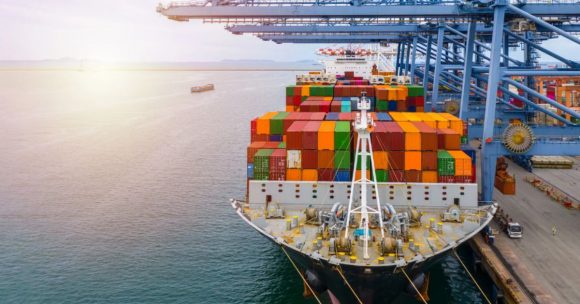Port cost management is in the spotlight as a maritime software startup is on a mission to modernize outdated accounting practices in the shipping industry. Harbor Lab has raised $16 million in series A funding, led by European VC Atomico.
Harbor Lab says: “There is a longstanding bottleneck at the heart of the shipping industry: a set of outdated, mostly manual accounting methods that many shipping companies still rely on to grapple with the complex web of costs that arise from their vessel’s port calls – the second largest expense for commercial vessels behind fuel, reaching around $2.2 million per vessel per year.”
What’s the bigger picture? The software company points out that every year, over 4 million port calls are made at about 4,000 ports worldwide for loading and unloading cargo.
The costs at these port calls include fees to port authorities for using their facilities and payments to local agents for essential services for the vessel and crew, such as spare parts and visas.
Port costs can vary
Harbor Lab highlights that shipping companies struggle to estimate port costs and predict voyage expenses due to the lack of standardization and transparency in ports worldwide.
The costs can vary significantly for the same ship at the same port because each terminal and berth has its own pricing policy. These expenses are also affected by local politics, economic changes, currency fluctuations, and the global economy.
Harbor Lab has a modern solution
How can this modernized way of port cost management help? “By streamlining how shipping companies handle these port-related costs, Harbor Lab enables a single individual to oversee disbursements for up to 50 vessels, a significant improvement on the previous ratio of one to six vessels,” says Harbor Lab.
The platform also helps prevent invoicing errors and overpayments by checking port call expenses against real-time official port tariffs from global port authorities. This reduces the error margin from 20% to just 3% per port call.
Harbor Lab provides useful services like Know-Your-Customer (KYC) verification, which improves security and compliance when dealing with local agents.
Photo Credit: Canva
About the author
Sharl is a qualified journalist. He has over 10 years’ experience in the media industry, including positions as an editor of a magazine and Business Editor of a daily newspaper. Sharl also has experience in logistics specifically operations, where he worked with global food aid organisations distributing food into Africa. Sharl enjoys writing business stories and human interest pieces.











